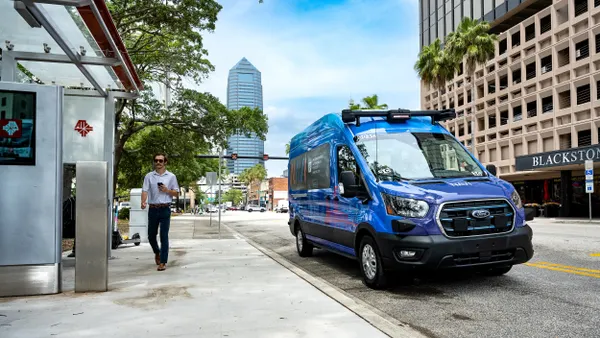Editor's Note: The following is a guest post from Joe Rinzel, a spokesperson for Americans for a Modern Economy.
While a scooter may evoke childhood nostalgia for many Americans, today you’re likely to see adults in business casual clothes zipping to work on an electric two-wheeler in many cities. But as scooter- and bike-sharing services become increasingly popular choices for urban transportation, local policymakers must consider how they can better integrate them into their cities rather than banning them — like some are already seeking to do.
Scooter-sharing services such as Lime, Spin and Bird are exploding in cities across the U.S., from Los Angeles to Austin to Washington, DC, as people continue to seek more efficient, cheap and environmentally friendly urban transportation alternatives. And investors are flocking to get in on the action; as CNBC recently reported, Lime and Bird have each attracted more than $100 million in funding. Last month, Lime announced that users will be able to rent scooters through the Uber app following the ride-hailing giant’s $335 million investment in Lime.
But with more scooters hitting streets and sidewalks, some critics are calling them a public safety hazard, as oft-helmetless daredevils weave through pedestrians and cars. Others have complained about dockless scooters being left randomly throughout cities.
Unfortunately, officials in some cities are taking a Draconian approach to this innovative, 21st century solution by cracking down on scooter companies. In June, San Francisco banned scooters until rental companies obtain permits and apply for a 12-month city pilot program. In West Hollywood, the City Council overwhelmingly voted to ban shared electric scooters, while some San Diego officials attempted to block them from beach boardwalks.
Stifling innovation is the wrong path forward, especially as cities continue to grapple with transportation challenges. It makes no sense to ban or overregulate these types of affordable and energy-efficient innovations that can take cars off the road and ease the burden on public networks. Instead, cities must be thinking toward the future by developing policies now to embrace scooters and other ride-sharing services and weave them into their transportation networks.
This means working closely with shared mobility companies to develop rules of the road to guide these services. It also means ensuring that those riding scooters are using them safely and responsibly to ensure pedestrian and motorist safety. City officials who take steps now to work in tandem with mobility companies to offer these services will prevent a world of headaches later as they inevitably become popular with residents and tourists.
In addition to offering a convenient transportation option that can relieve strain on transportation networks, these services can provide a variety of other benefits to municipalities. For instance, data sharing agreements with scooter-sharing providers could provide new transportation insights to city planning officials — much like partnerships that Uber has forged with cities across the country.
And in an era when many urban municipalities are striving to become the next "smart city," integrating cleaner and more efficient modes of transportation into existing networks can position cities as an ideal location for businesses to set up shop and attract new workers.
But all of this requires local policymakers to plan for the future and embrace innovation — rather than banning scooters out of existence. Even something as simple as the electric scooter — once simply thought of as a child’s toy — can unlock a world of benefits for communities and governments, but only if policymakers have a vision for the future.









